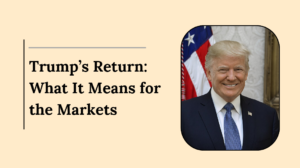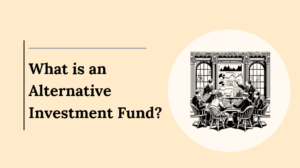When it comes to the stock market, understanding types of investors is crucial. Whether you’re just starting your investment journey or already have a few shares in your portfolio, knowing who invests and why can help guide your own financial strategies.
So let’s take a closer look at the types of investors in the stock market and how they differ in their approach to financial investments.
1. Retail Investors
Let’s start with a group that includes most of us: retail investors. These are individual investors who buy stocks, bonds, and other types of investment on their own. Retail investors typically trade in smaller volumes and often make choices based on personal research, financial goals, and sometimes recommendations.
If you’re researching types of investment in share market, there’s a good chance you’re a retail investor, exploring opportunities to grow your wealth.
Retail investors have a range of motivations. Some are long-term players, while others may be looking for short-term gains. Regardless, as retail investors, we usually have direct control over our investment decisions.
2. Institutional Investors
Ever wonder who the big players in the market are? Enter institutional investors—entities like banks, mutual funds, pension funds, and insurance companies that pool large amounts of money to make investments. Unlike individual retail investors, institutional investors buy in massive quantities, often influencing stock prices and trends due to their sheer purchasing power.
Institutional investors have entire teams of analysts and strategists to guide their financial investment decisions. For you, knowing their moves can be helpful, as these organizations often shape market trends. Many retail investors keep an eye on institutional moves to gain insights.
3. Non-Institutional Investors
Alongside the major institutions, there are non-institutional investors. These include high-net-worth individuals (HNIs) and foreign investors who don’t fall under the same regulatory guidelines as large institutions. While they don’t have as much influence as institutional investors, their choices can still impact the market—especially in certain stocks or sectors.
Non-institutional investors have the advantage of flexibility. While they may not have the resources of big institutions, they’re able to make quicker investment decisions based on market conditions, an appealing approach if you prefer agile strategies in your financial investment.
4. Angel Investors
An angel investor is someone who provides capital to startups and small businesses in exchange for ownership equity or convertible debt. These investors are critical for businesses at the seed or early stages and are typically drawn to ventures with high-growth potential.
If you’re considering the stock market for investment in startups, angel investing might be a path worth exploring. Keep in mind that while angel investing can yield high returns, it also carries substantial risk due to the unpredictable nature of early-stage companies.
However, for those willing to take calculated risks, this form of investment can be both rewarding and fulfilling.
5. Venture Capitalists (VCs)
Venture capitalists are quite similar to angel investors but operate on a larger scale, usually through professionally managed funds that aim to support promising startups. VCs often take a more hands-on approach by providing both funding and guidance to help the companies they invest in succeed.
Unlike angel investors, VCs typically invest in established startups with a strong track record. This type of investment suits investors who are willing to wait longer for potentially high returns, with added involvement in the business growth process.
6. Hedge Funds
When you think of high-stakes investing, hedge funds often come to mind. These funds pool money from accredited investors and institutions to make aggressive investments in various assets, including stocks, bonds, and derivatives.
Hedge funds aim to maximize returns and often have very specific strategies, such as leveraging or short-selling, that differ from typical types of investment in share market.
While hedge funds aren’t accessible to everyone, understanding how they operate can give you insight into different investment tactics. If you’re a seasoned investor with a higher risk tolerance, hedge funds might be worth exploring in the future.
7. Government Investors
Government entities also invest in the stock market, primarily through sovereign wealth funds. These funds manage the state’s money, often derived from reserves, and invest in various global assets, including stocks and bonds, to generate returns that support economic development and infrastructure projects.
Though most retail investors won’t interact directly with government investments, it’s good to know that even governments participate in the stock market. It reflects the broad appeal and importance of diversified financial investment on a global scale.
What Do You Understand by Investment?
Before wrapping up, let’s clarify what investing really means. When you invest, you’re essentially putting your money into assets that you expect will grow over time. These assets could be stocks, real estate, bonds, or even mutual funds, among others. The aim of an investment is simple: to see your money increase in value, ideally at a rate that outpaces inflation.
Understanding types of investors in stock market can help you find your own investor identity. Do you want to be a retail investor with hands-on control? Or are you drawn to the more strategic, long-term approach of a venture capitalist? Each type offers unique opportunities and challenges, so think about which one aligns with your goals.
Wrapping Up
Investing in the stock market can be a rewarding journey, but knowing the types of investors and types of investment in share market available is essential to making informed decisions. From retail investors like you and me to giant institutional players, every type has a role to play in shaping market dynamics.
So, as you explore your options, consider which investor type resonates with your approach. Your unique investor profile will help you make financial decisions that align with your personal goals, ultimately making your journey in the stock market more tailored and strategic.
Ready to take your investing to the next level? With TradingView, you can access advanced charting tools, real-time data, and insights from top investors—all in one place. Start exploring TradingView today and make more informed investment decisions.
Also Read:











